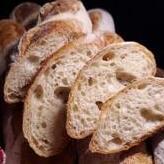I haven't tried it, and haven't ever considered it until recently, but I suspect that it wouldn't be the disaster that some might think.
In the world of cider it seems to work. I've seen several videos where people claim that the taste difference is negligible (and in some cases, perhaps even better).
The only real practical difference seems to be the maximum alcohol content it can tolerate - which shouldn't be much of a concern for beer. And also what sugars it can digest (wine yeasts are apparently more happy to break down white sugar).
Will it be different? Yeah, probably. But compared to the dizzying array of craft brews these days with weird ingredients (from coffee to fruit to chocolate), how much difference could it actually make?
The biggest problem is how long it takes to make a batch of beer. Not as long as wine of course, but way longer than trying a different kind of nut in a cookie recipe. So you're risking a lot of your own time by trying something new.
This reminds me of a story I read about how, back in the day, Australian brewers felt that English were screwing them on malt prices. They discovered that they could use invert sugar to produce a beer that everyone that was happy with - which of course caused the English to sue - claiming that they couldn't call it beer if it didn't contain malted barley.





